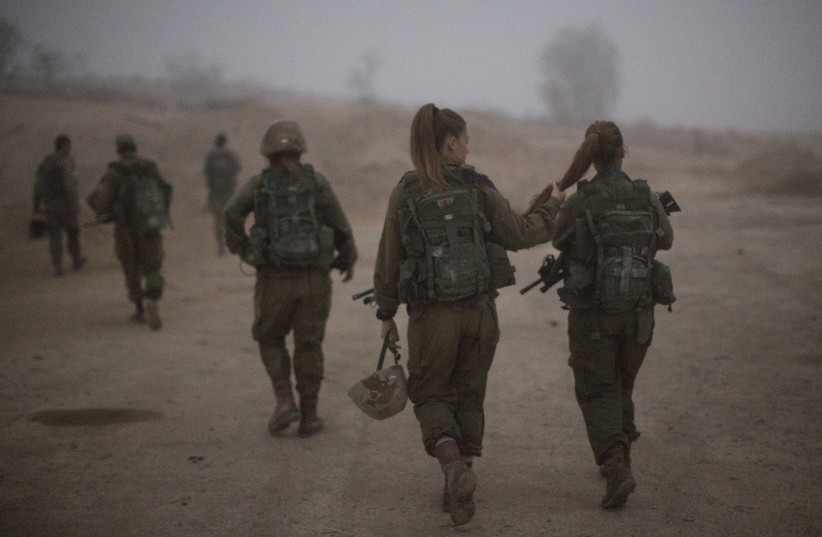March is Women’s History Month, an annual observance to highlight the contributions of women around the world, with March 8, International Women’s Day, celebrating the achievements of women as well as marking a call to action for accelerating gender parity.
As American icon Gloria Steinem, who turns 90 on March 25, said recently, “Democracy is supposed to mean everybody is equal. And as long as we have a patriarchy – indeed, as long as women raise children more than men do and men earn more money than women do – we don’t have democracy at home… Democracy is a statement of hope. Not reality.”

Israeli women underrepresented in municipal politics
Although Israel has made significant strides toward gender equality since its establishment in 1948, it has a long way to go. The most recent example of this is last week’s municipal elections, in which men swept victories in most races. Out of 258 municipalities, only 15 have mayors who are women. The most prominent of these is Netanya’s Miriam Feierberg, 72, who became the city’s first female mayor in 1998.
In Beit Shemesh, Mayor Aliza Bloch won a close battle with former mayor Moshe Abutbul, but because neither garnered the necessary 40% of the votes, they are now set for a run-off. And in Haifa, Mayor Einat Kalisch-Rotem won only 4.5% of the vote, and Israel’s third largest city is now set for a run-off between two men: former mayor Yona Yahav and challenger David Etzioni.
According to an Israel Democracy Institute study, “From a historical perspective, the proportion of female heads of local authorities in Israel has been extremely low – essentially negligible.” The authors note that the proportion is also particularly low in comparison to the representation rates of women in the Knesset and the government. There are 31 female MKs (26%), while only five of the 32 cabinet ministers (16%) are women.
One indication of the pervasive sexism in politics is evident in the latest Pew survey, conducted before the war, which found that a third of Israelis believed that politics would get worse if more elected officials were women, compared to about a third who say politics would improve and about another third who say it would stay the same. Israel’s percentage of those who think politics would worsen with more women was the highest out of the 24 countries polled.
Israel is also unique in two factors: it is the only country where views are evenly split, as Israelis are just as likely to believe policies would get worse as they are to say they would improve or stay the same, and it is the country with the biggest differential between gender-based views, where 47% of women think politics would improve, over three times the 15% of men who think the same.
This is a sad state of affairs. Israel’s only female prime minister, Golda Meir, fared exceptionally well during the Yom Kippur War, as demonstrated in the 2023 film Golda directed by Guy Nativ. “Whether women are better than men I cannot say, but I can say they are certainly not worse,” she famously quipped.
Women's heroism in the face of war
In his keynote address to the World Zionist Organization in Jerusalem last week, Rabbi Doron Perez, whose son Daniel is one of the hostages being held by Hamas, made a point of paying tribute to the “righteous women” who have played a key role in Jewish history, citing Esther, whose heroism is celebrated on Purim.
“Yes, our sons and brothers and fathers predominantly are those fighting in Gaza and those falling, but their spouses, their mothers, their grandmothers: the price they pay, sometimes families not seeing each other... for months on end” is also heroic: “the incredible dedication, not only of our fathers and sons but of our mothers and daughters and those in the home front and in the battlefront who together represent the spirit of life.”
Many of the heroes of this war have been women. As The Jerusalem Post’s Yonah Jeremy Bob reported, “a non-commissioned officer in Intelligence Unit 8200, ‘V’ is the female hero who foresaw the full scope of Hamas’s plans and warned about them multiple times before October 7.” Were the warnings of the IDF lookouts not heeded because they were women?
One thing should be abundantly clear: So long as there is gender inequality, Women’s History Month and International Women’s Day are extremely relevant – including in Israel.
